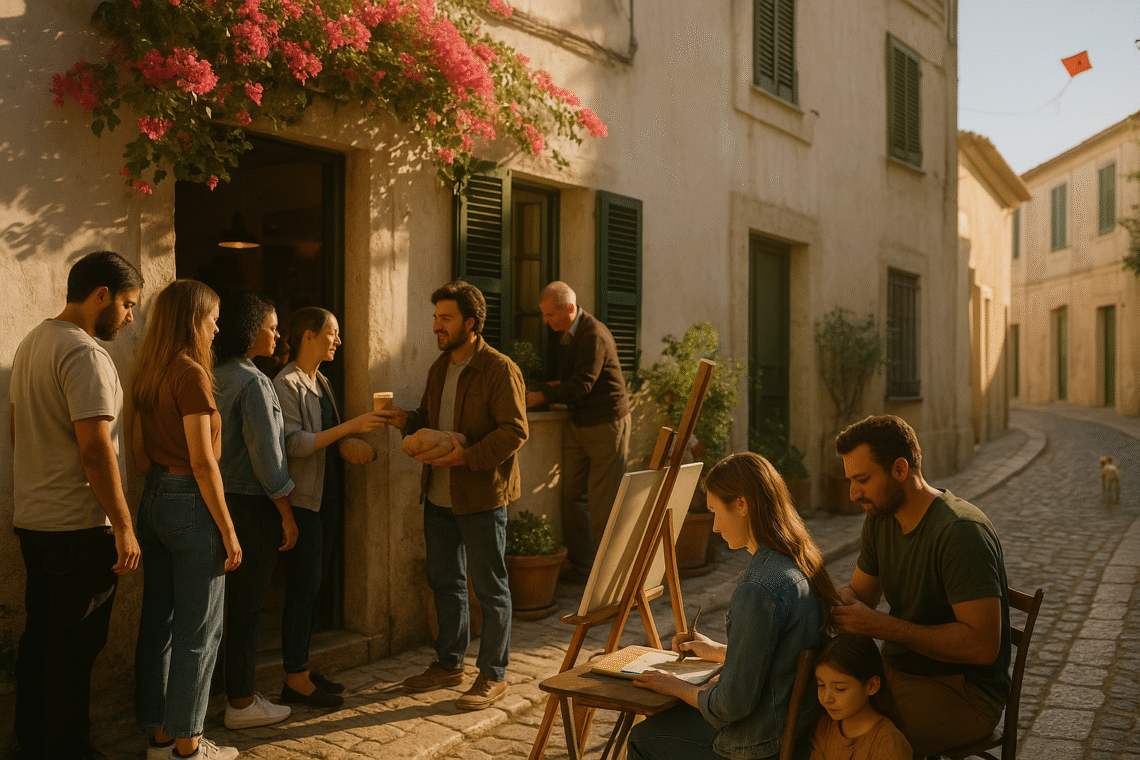There is, I think, a certain nobility in the way we queue for coffee.
Consider it: strangers rising with the sun, rubbing the sleep from their souls, lining up in quiet procession at some corner café or roadside cart. There’s often no sermon, no incense, no choir, but there is something oddly reverent in the whole affair. We stand with our smartphones and our morning silences, waiting to receive not communion exactly, but the blessed sacrament of caffeine.
I do not jest. At least, not entirely.
Freedom, in its loftier forms, is often debated in courts or parliaments, scrawled across declarations, or shouted from podiums. But its truest expression, I suspect, is found in these everyday rituals,in the unspectacular but deeply human choices we are free to make each morning. The choosing of a croissant over a bran muffin. The decision to sit by the window. The ability to read poetry while the city hurries by, or simply to scroll aimlessly through news of a world both tragic and strangely amusing.
These small freedoms are not incidental. They are the fruit of something vast and hard-won: the social architecture that gives us space to live, to think, to share, and yes, even to dawdle. Without such structures,without rule of law, civic trust, shared norms,there is no café line. Only chaos. Only the loudest voice, the sharpest elbow, the next catastrophe.
A free society is not simply one in which you may speak your mind. It is one in which you may speak quietly, or not at all. It is not only the liberty to march in protest, but the quieter liberty to walk the dog at dawn without fear. Freedom is not forged only in revolution, but rehearsed daily in our rituals,the liturgy of the ordinary, if you like.
I recall a street in Lisbon where I once watched an elderly man water a row of potted plants outside his ground-floor window. He moved with gentle precision, as if the act were sacred. And perhaps it was. No one hurried him. The foot traffic flowed around him like a stream around a stone. No one questioned his right to care for something small, to tend beauty in the cracks of city life.
That, I believe, is what strength looks like in a free society: not just the capacity to defend borders or pass laws, but the cultivation of space in which ordinary acts of care are allowed to flourish. It is the quiet encouragement of a thousand unseen gestures,the artist at her easel, the father braiding his daughter’s hair, the friend who stops by with a fresh loaf of bread.
Yet, these rituals are not self-sustaining. They require tending. Like any good garden, they need both sun and structure. Institutions, for instance,those often-maligned but essential guardians of habit and hope. Schools, libraries, public parks, post offices,all those wonderful places where we encounter strangers not as threats or algorithms, but as fellow humans muddling along in the same weather.
To safeguard a free society, then, is not merely to guard its headlines but to cherish its footnotes. The morning routine, the lunchtime stroll, the shared glance on a train,these are the scattered seeds from which belonging grows.
If freedom is a kite, then surely these small rituals are the string,tethering us not downward, but homeward.
So, brew your tea slowly. Offer someone your seat. Share the joke you heard on the radio. Greet the barista by name, if you remember it. In doing so, you affirm something sacred: that freedom is not only the absence of constraint but the presence of gentle, persistent attention to one another’s dignity.
And let us not grow cynical about these things. It is easy to do so, I know. The world seems loud with grievance and greed. But still the café opens. Still the paper arrives. Still the neighbour waves from their porch.
So here is your invitation: Tend the rituals that tend to us. Protect the small spaces where care is exchanged and meaning is made. Make your freedom felt not in declarations, but in devotion,however humble,to the lives around you.
After all, in the liturgy of the ordinary, each of us is both celebrant and congregation.






What struck me most was how you highlight the quiet side of freedom—the ability to be still, to choose a simple pleasure, and to be in the moment. In a world that often values hustle, it’s nice to be reminded that stillness is its own form of rebellion.